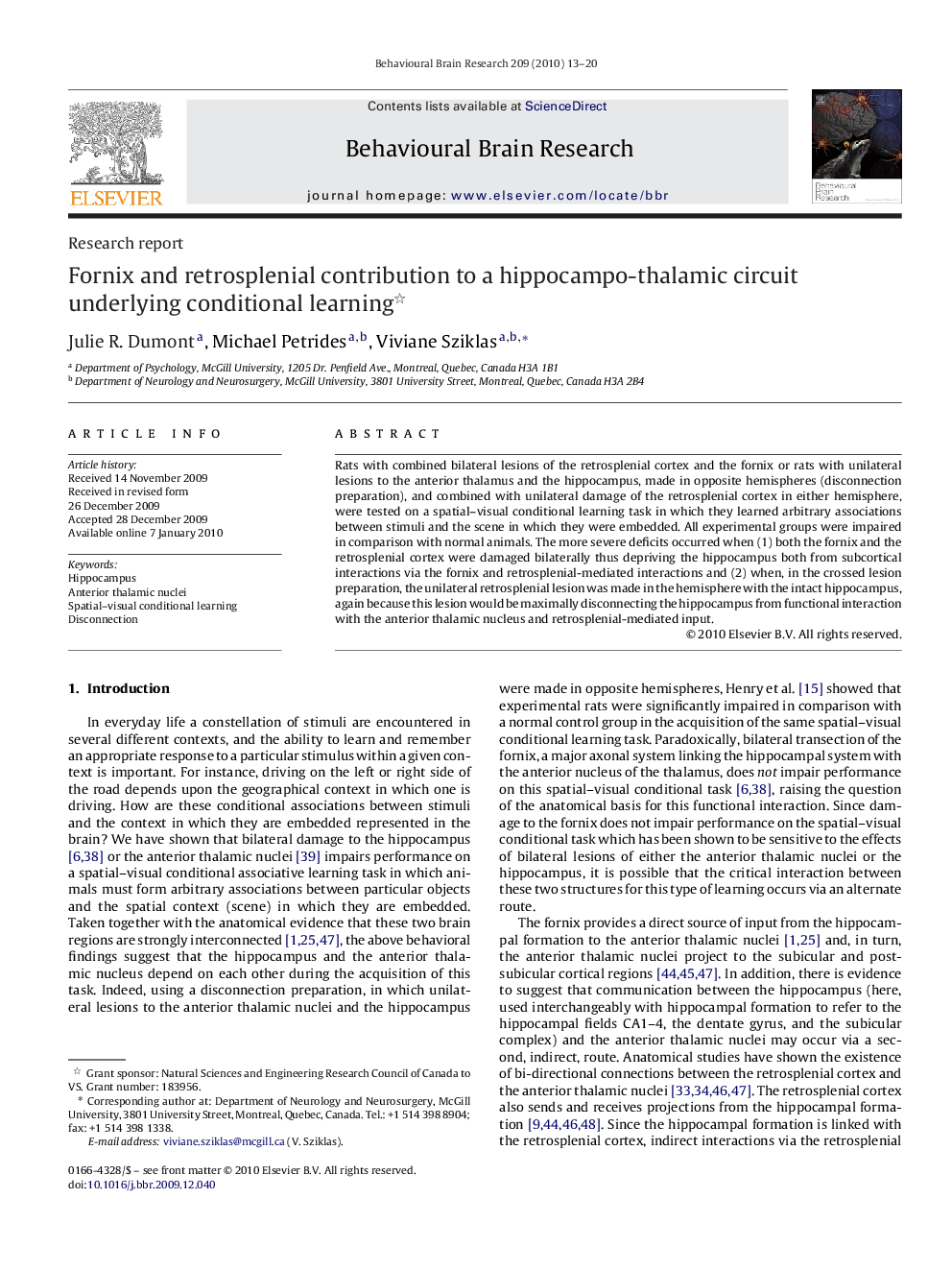| Article ID | Journal | Published Year | Pages | File Type |
|---|---|---|---|---|
| 4314239 | Behavioural Brain Research | 2010 | 8 Pages |
Rats with combined bilateral lesions of the retrosplenial cortex and the fornix or rats with unilateral lesions to the anterior thalamus and the hippocampus, made in opposite hemispheres (disconnection preparation), and combined with unilateral damage of the retrosplenial cortex in either hemisphere, were tested on a spatial–visual conditional learning task in which they learned arbitrary associations between stimuli and the scene in which they were embedded. All experimental groups were impaired in comparison with normal animals. The more severe deficits occurred when (1) both the fornix and the retrosplenial cortex were damaged bilaterally thus depriving the hippocampus both from subcortical interactions via the fornix and retrosplenial-mediated interactions and (2) when, in the crossed lesion preparation, the unilateral retrosplenial lesion was made in the hemisphere with the intact hippocampus, again because this lesion would be maximally disconnecting the hippocampus from functional interaction with the anterior thalamic nucleus and retrosplenial-mediated input.
